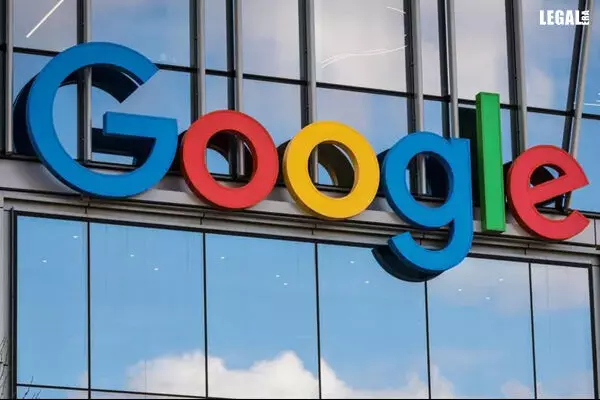- Home
- News
- Articles+
- Aerospace
- Agriculture
- Alternate Dispute Resolution
- Banking and Finance
- Bankruptcy
- Book Review
- Bribery & Corruption
- Commercial Litigation
- Competition Law
- Conference Reports
- Consumer Products
- Contract
- Corporate Governance
- Corporate Law
- Covid-19
- Cryptocurrency
- Cybersecurity
- Data Protection
- Defence
- Digital Economy
- E-commerce
- Employment Law
- Energy and Natural Resources
- Entertainment and Sports Law
- Environmental Law
- FDI
- Food and Beverage
- Health Care
- IBC Diaries
- Insurance Law
- Intellectual Property
- International Law
- Know the Law
- Labour Laws
- Litigation
- Litigation Funding
- Manufacturing
- Mergers & Acquisitions
- NFTs
- Privacy
- Private Equity
- Project Finance
- Real Estate
- Risk and Compliance
- Technology Media and Telecom
- Tributes
- Zoom In
- Take On Board
- In Focus
- Law & Policy and Regulation
- IP & Tech Era
- Viewpoint
- Arbitration & Mediation
- Tax
- Student Corner
- AI
- ESG
- Gaming
- Inclusion & Diversity
- Law Firms
- In-House
- Rankings
- E-Magazine
- Legal Era TV
- Events
- News
- Articles
- Aerospace
- Agriculture
- Alternate Dispute Resolution
- Banking and Finance
- Bankruptcy
- Book Review
- Bribery & Corruption
- Commercial Litigation
- Competition Law
- Conference Reports
- Consumer Products
- Contract
- Corporate Governance
- Corporate Law
- Covid-19
- Cryptocurrency
- Cybersecurity
- Data Protection
- Defence
- Digital Economy
- E-commerce
- Employment Law
- Energy and Natural Resources
- Entertainment and Sports Law
- Environmental Law
- FDI
- Food and Beverage
- Health Care
- IBC Diaries
- Insurance Law
- Intellectual Property
- International Law
- Know the Law
- Labour Laws
- Litigation
- Litigation Funding
- Manufacturing
- Mergers & Acquisitions
- NFTs
- Privacy
- Private Equity
- Project Finance
- Real Estate
- Risk and Compliance
- Technology Media and Telecom
- Tributes
- Zoom In
- Take On Board
- In Focus
- Law & Policy and Regulation
- IP & Tech Era
- Viewpoint
- Arbitration & Mediation
- Tax
- Student Corner
- AI
- ESG
- Gaming
- Inclusion & Diversity
- Law Firms
- In-House
- Rankings
- E-Magazine
- Legal Era TV
- Events
U.S. Supreme Court Hands Win to Google in Legal Battle with Genius over Internet Lyrics

U.S. Supreme Court Hands Win to Google in Legal Battle with Genius over Internet Lyrics
The U.S. Supreme Court has refused to revive a lawsuit by music website Genius Media Group Inc. accusing Alphabet Inc.’s Google of stealing millions of song lyrics and misusing its transcripts of song lyrics in search engine results without a license.
The justices dismissed an appeal by Genius of a Lower Court’s decision blocking its breach-of-contract claims against Google accused the tech giant of violating contract by using its song lyrics in search results without attribution.
Genius had argued that a win for Google could allow big tech companies to steal content without repercussions from websites such as Reddit, eBay and Wikipedia that aggregate user-created information.
Genius, formerly known as Rap Genius, stores a vast database of song lyrics.
It had first sued Google in New York state Court in 2019, condemning it of copying and posting its lyrics transcripts at the top of search results without permission, diverting web traffic that should have gone to the Genius site.
Notably, Genius itself does not hold copyrights in the lyrics, which usually belong to the artists or publishers, yet the company accused Google of violating its terms of service by stealing and reposting its work.
According to the lawsuit, one of the first Google posts it suspected as copying involved the lyrics for the song ‘Panda’ by the rapper Desiigner.
Genius also mentioned that it allegedly caught Google copying through the use of watermarks songs by rapper Kendrick Lamar and pop singers Selena Gomez and Alessia Cara
In its petition it pleaded to the Supreme Court to review a distinctive pattern of curly and straight apostrophes in transcriptions for some new songs that spelled out 'RED HANDED' in Morse code.
The New York-based 2nd U.S. Circuit Court of Appeals in 2022 upheld a ruling that the Genius breach-of-contract claims were based on Copyright Concerns and could be pursued only in a Copyright Lawsuit.
In its appeal to the Supreme Court, Genius said that the ruling of the 2nd Circuit would give Google and other ‘behemoths like them’ a free hand to ‘vacuum up content and increase their dominance on the internet.’
Whereas, the tech giant Google vehemently asserted before the High Court that it holds licenses to the lyrics and argued that Genius wants to ‘ignore the true copyright owners and invent new rights through a purported contract.’


